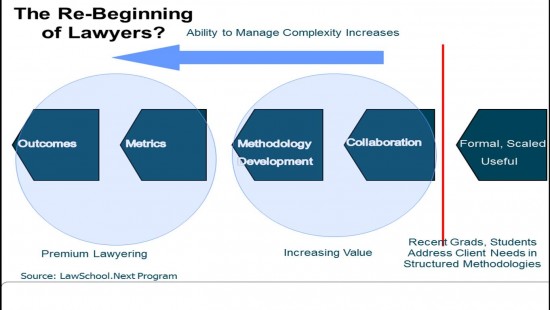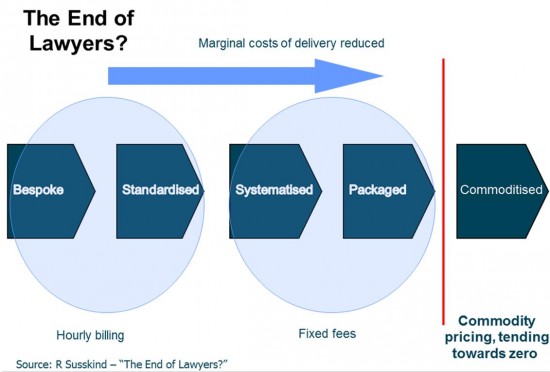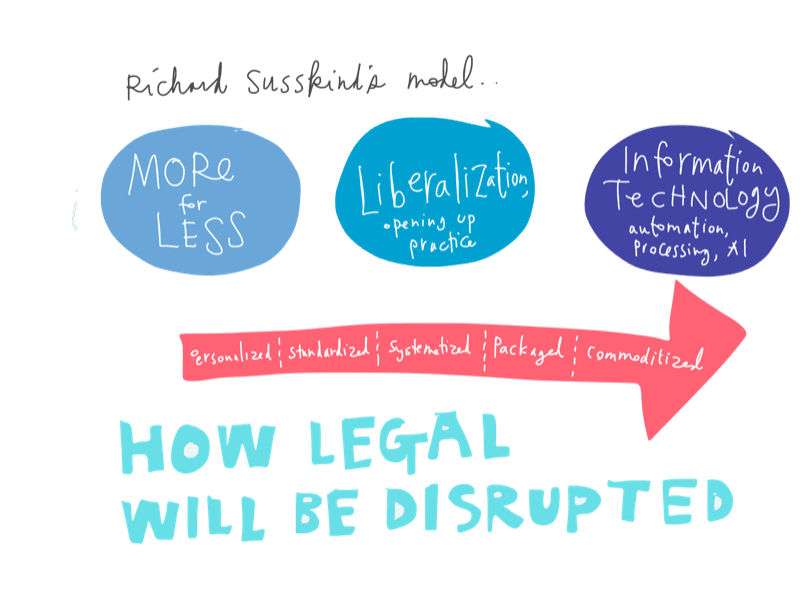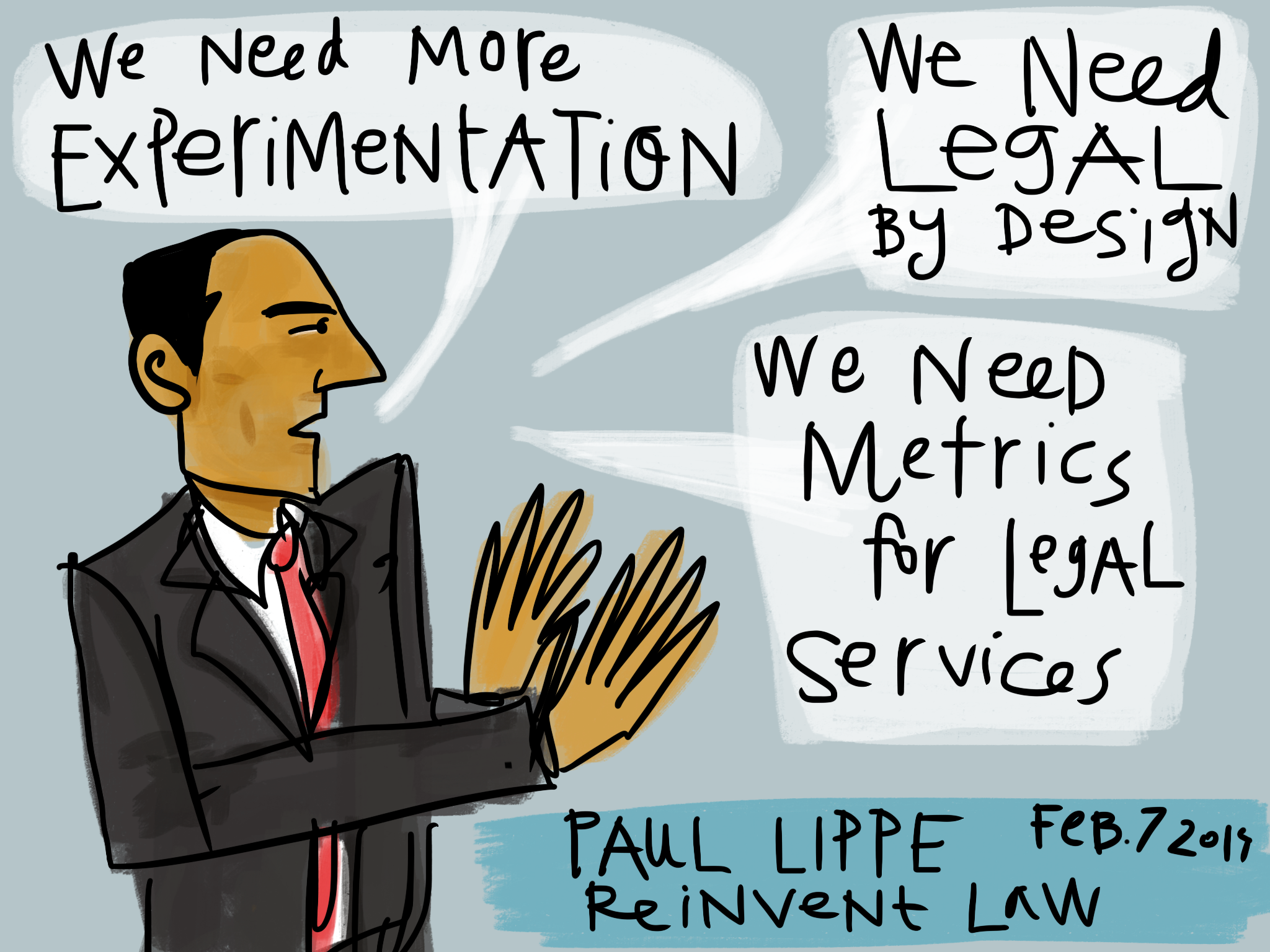After a recent comment from the wonderful Peter Lederer about the challenge of building new models of law schools and legal professional training, I got some fresh inspiration from an article by Paul Lippe on the Legal Rebels blog on the ABA’s website.
In his response to Richard Susskind’s book Tomorrow’s Lawyers, an Introduction to Your Future, he has some ideas about preparing for a commoditized future of law.
One of his main recommendations is to increase training for (among a few other skills) ‘formal legal work’. This will help legal providers capture the market for unbundled legal work.
Lippe talks about training future legal service deliverers (not necessarily lawyers) with new models of legal ed:
Let me suggest that today’s “crisis” in legal education is rooted in law schools’ clinging to these twin beliefs in uniqueness, which are fine as a fundamental core, but which are very limiting if they are the extent of your thinking.
But what if we turn things around, what if we Run Richard in Reverse? Could we embrace the reality that much in law is repetitive, but that reality doesn’t denigrate the profession in any way? If we start by assuming most problems are alike and then move enthusiastically up the complexity ladder (as opposed to moving reluctantly down it, as we do today), perhaps both legal practice and legal education can unlock some opportunities. I’ll tweak Richard’s terms and say that the Susskind in Reverse hierarchy for legal education is:
• Formal
• Collaboration
• Methodology Development
• Assessment
• Outcomes
This is in response to Richard Susskind’s model that would predict the extinction of lawyers through the commoditization of law:
Lippe sees how legal ed could evolve to keep up with the increasing commoditization and presence of tech in law:
As one customer put it to me “Long gone are the days when relationship (or panel) law firms can expect all work (or even all types of work in their category) to come their way. Clients are constantly looking to re-engineer how legal services are done to increase the yield for every dollar spent. Firms that try to hold onto work because they view it as bespoke will soon become irrelevant as in-house lawyers find other smarter ways to get the same outcome for less. It is the firms that embrace this New Normal who will succeed, by demonstrating their value to the client.”
From an educational standpoint, developing students’ competencies in Formal work will give them entree to large-scale projects, and they can quickly migrate up the complexity curve; from a client and societal outcome standpoint, “big enough to be efficient and compliant” is a much better place to get to than “too big to fail.”




